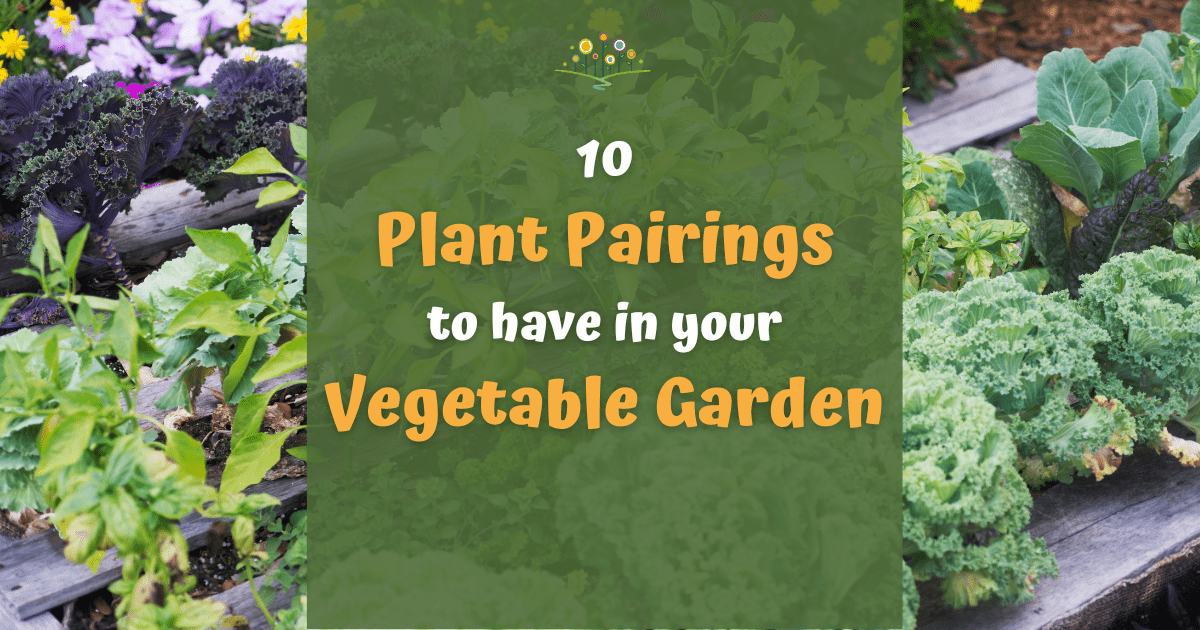
Did you know that the plants in your garden can work as a team? Due to their varying properties, certain plant pairings can benefit each other’s growth and health. Here are a few dynamic duos that you can grow in your garden.
It’s thrilling to watch your garden spring to life. And it feels even better to see it thrive. To accomplish this, consider how companion plants can mutually benefit each other’s health and growth. Here are a few plant pairings to add to your vegetable garden.
Tomatoes and Basil
Tomatoes and basil are not only great in recipes, but they also give each other a boost right from the beginning. When planted about a foot apart, basil is believed to repel pests and increase the overall yield of tomatoes. It also attracts pollinators and enhances the tomatoes’ flavor.
Garlic and Potatoes
Due to its pungent scent, garlic tends to be very effective at warding off pests, especially aphids. Planting garlic between rows of potatoes makes it difficult for certain pests to find the beds. This solution could potentially be more effective than fungicidal treatments.
Sage and Carrots
Sage does a nice job of keeping carrot rust flies at bay. Which makes it a great companion plant for (you guessed it!) carrots. Growing these together prevents damage to the carrots and may also enhance their flavor.
Corn and Cucumbers
Corn is beneficial to the growth of cucumbers by providing functional support and, thanks to the strength and height of the stalks, abundant shade. Corn also adds essential nutrients such as nitrogen to the soil.
Strawberries and Bush Beans
Bush beans are strawberries’ most devoted ally. They help to ward off garden beetles and other pests that are typically attracted to strawberry plants. They also provide additional nitrogen for the soil and help increase the overall yield.
Beets and Lettuce
If you’re trying to conserve space in your garden, try planting beets and lettuce next to each other. As a root vegetable, beets grow down into the soil, while lettuce tends to sprout up with shallow roots. This means they won’t compete for valuable growing space in your garden.
Turnips and Peas
Turnips and peas make great companions. Peas provide essential nitrogen to the soil that’s beneficial to turnips. In turn, turnips act as natural pest control by repelling aphids away from the peas.
Peppers and Leeks
Leeks don’t need a lot of room to grow, which makes them perfect for filling in extra space near pepper plants. They’re also believed to deter pests (such as carrot flies) that are attracted to peppers.
Asparagus and Eggplant
Asparagus and eggplant are a mutually-beneficial combo. Underground pests such as nematodes are effectively deterred by asparagus, thus saving the roots of the eggplants. Eggplants can also repel asparagus beetles and add extra nutrients to the soil.
Squash and Dill
Fragrant herbs like dill are great for warding off pests that tend to feed on squash. Flowering dill also provides nectar for pest-eating predators like wasps and ladybugs.
There’s nothing more rewarding than watching the fruits (and vegetables) of your labor thrive. If you’d like some expert advice on plant pairingss for your garden, stop by our greenhouse!
To see what’s springing up around the greenhouse, sign up for our newsletter.



